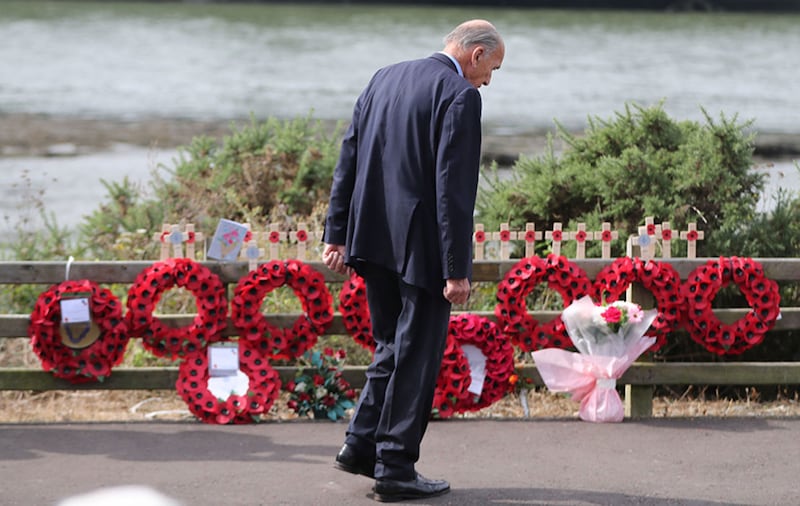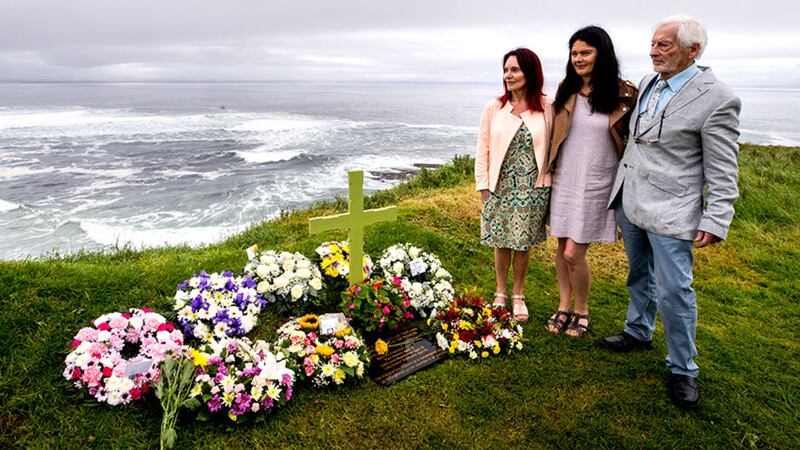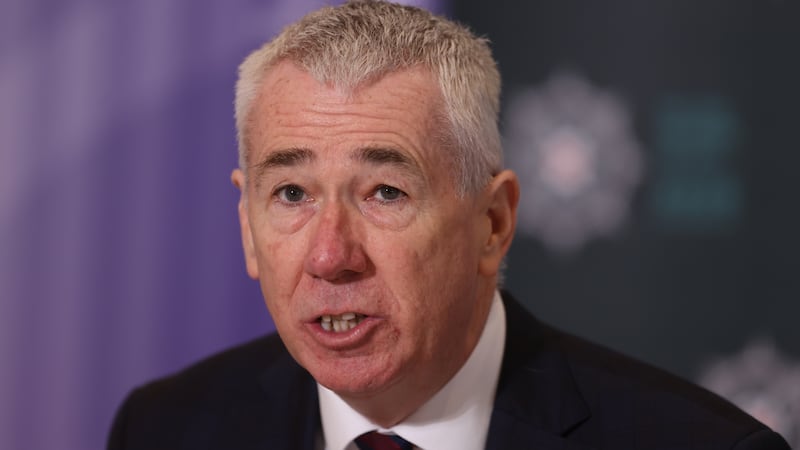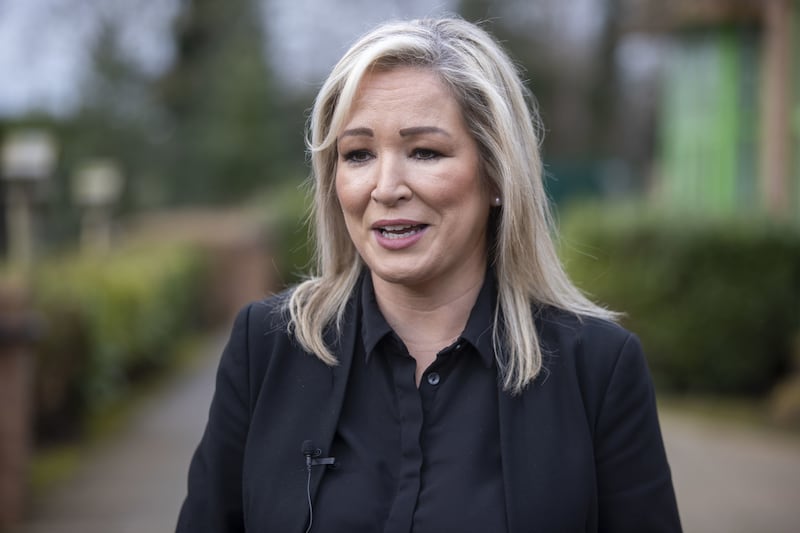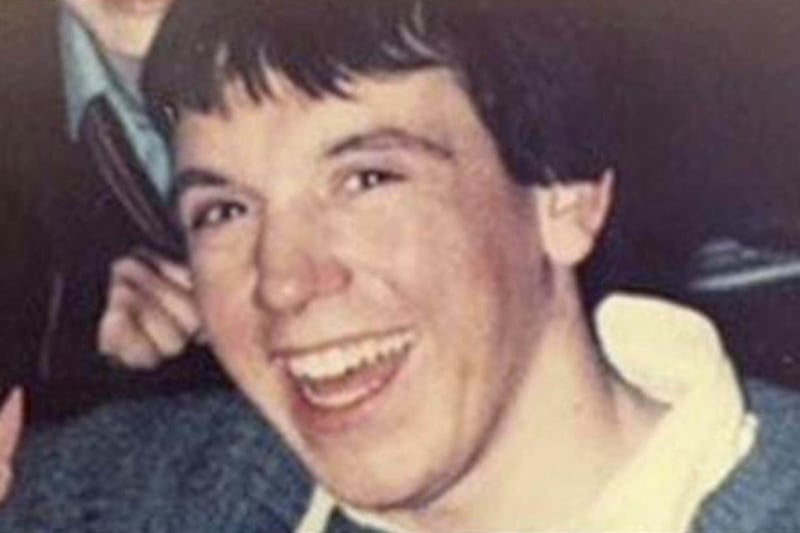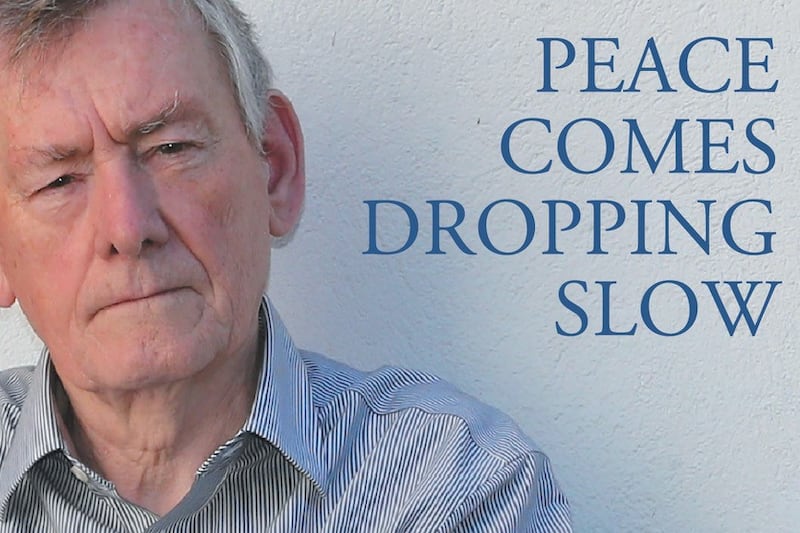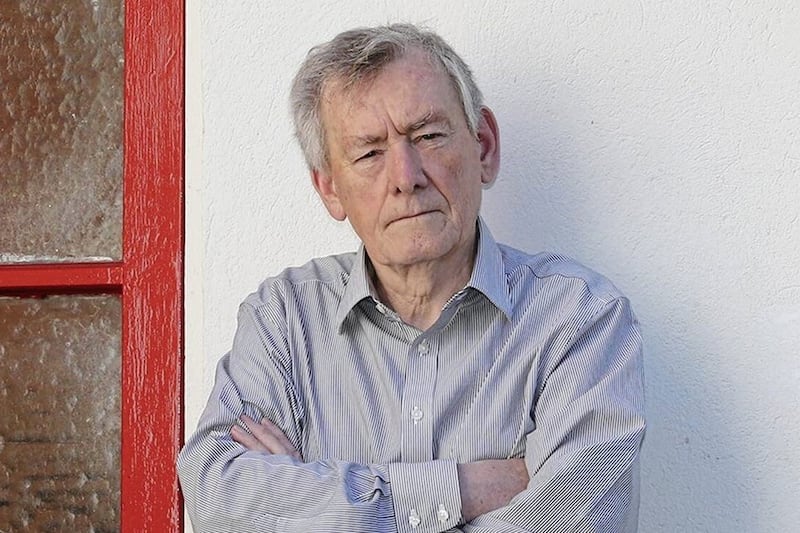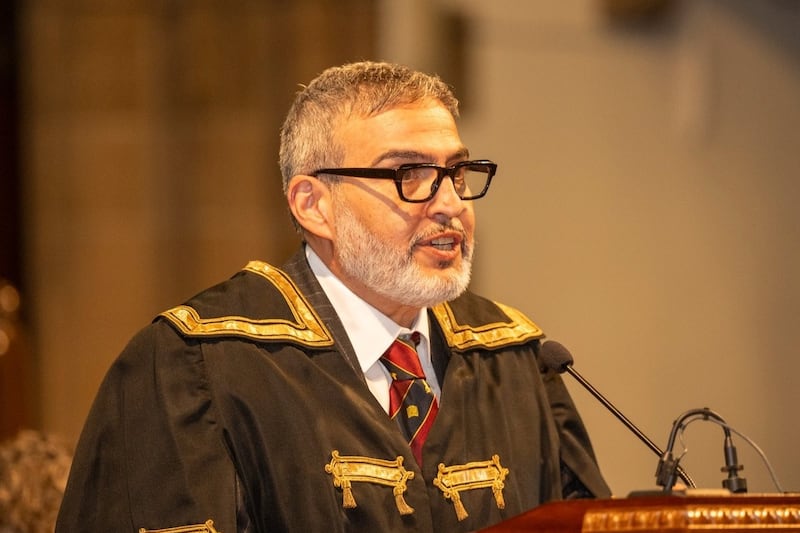The IRA killings of Lord Mountbatten and 18 soldiers on one of the bloodiest days of the Troubles have been commemorated 40 years on.
In Mullaghmore, Co Sligo, a service was held to remember Mountbatten - Queen Elizabeth's second cousin - and three others who were killed when republican paramilitaries blew up their fishing boat.
At Narrow Water, Co Down, veterans gathered at the roadside to remember the soldiers who were killed at the spot by two IRA bombs later on the same day in 1979.
The mother and father of Paul Maxwell, the Co Fermanagh teenager who died in the boat bomb, were among those who attended the outdoor service on a clifftop overlooking the scene of the atrocity.
John Maxwell and Mary Hornsey laid a wreath together, while Mr Maxwell also read a Seamus Heaney poem to the crowd of local people who came to show support.
Read More: Narrow Water 'was like a scene from Dante's Inferno'
At Narrow Water, more than 200 veterans, politicians and local people were present for the service and wreath-laying ceremony on the banks of the Newry River.
Those in attendance included survivors of the atrocity which took place on August 27 1979 when the IRA detonated the remote control bombs from a firing point on the other side of the river in the Republic.
The former head of the British army General Sir Mike Jackson was among those present today.
During the cross-community religious service at Mullaghmore, Church of Ireland archdeacon Isaac Hanna said the day offered an opportunity for everyone to rededicate themselves to the goal of reconciliation on the island of Ireland.
"The events of 40 years ago are hard to imagine as we look out over this scene," he said, as Paul Maxwell's parents watched from the front row.
"And yet they speak of innocence lost, they speak of a time when horror visited this coastline and this place, they speak of a time of confusion and fear.
"I also want to say they speak of a time when a community rallied around those that had lost loved ones, when this community stood with this family in particular and all those who had been affected in some way, and said: 'This was not done in our name.'
"We stand with you and there is comfort and strength in knowing that you have this support in this place at this time."
Archdeacon Hanna said the bombers had not succeeded if their goal was to strike fear into people.
"Fear can have a stifling effect on those who are coerced and are intimidated in any way, and perhaps that was the intention that day - but the opposite has been the effect," he said.
The cleric added: "Today is as much about rededicating ourselves to the cause of justice, the cause of reconciliation and the cause of freedom, so that no person should have to go through what you as a group have gone through."
After the service, Mary Hornsey said it had been a privilege to attend.
"I think it was absolutely wonderful that the community came out today and organised this lovely service of remembrance," she said.
"I would like to say thank you to all of those people who took part in this. It has helped us enormously because I feel that in this service there was love and support for our family, and we appreciate that."
As well as killing Lord Mountbatten and Paul Maxwell, who worked on the boat, the Mullaghmore blast also claimed the lives of Lady Doreen Brabourne, the 83-year-old mother-in-law of the earl's daughter, and his 14-year-old grandson Nicholas Knatchbull.
As well as the 18 soldiers who died at Narrow Water, there was a 19th victim of the incident when William Michael Hudson, (29), a civilian visiting the Republic from London, was hit by a bullet fired by soldiers across the Newry River to where he was standing with his cousin Barry Hudson, who was injured.
After the service in Co Down, Graham Eve, a former member of the Parachute Regiment who was deployed to secure the scene after the bombs, urged politicians to restore the powersharing government at Stormont.
"What I am bitter at now is the politics of the country and why we still haven't got this sorted out," he said.
"The secretary of state should turn around to the politicians of this country and say, 'Stormont will be open on Monday morning, you turn up you get paid, you don't turn up you get sacked, and let's take it from there and sort this bloody thing out.'
"Why are they still arguing, why is there so much hatred? Put the orange away, put the green away, let's move forward. Sort themselves out - it's terrible and I am so annoyed by the politicians.
"I appreciate the history of the past, that's the problem, it's the past, let's forget about the word 'past' and let's move forward. Please.
"I am not going to die a bitter man, I have no bitterness in me."
